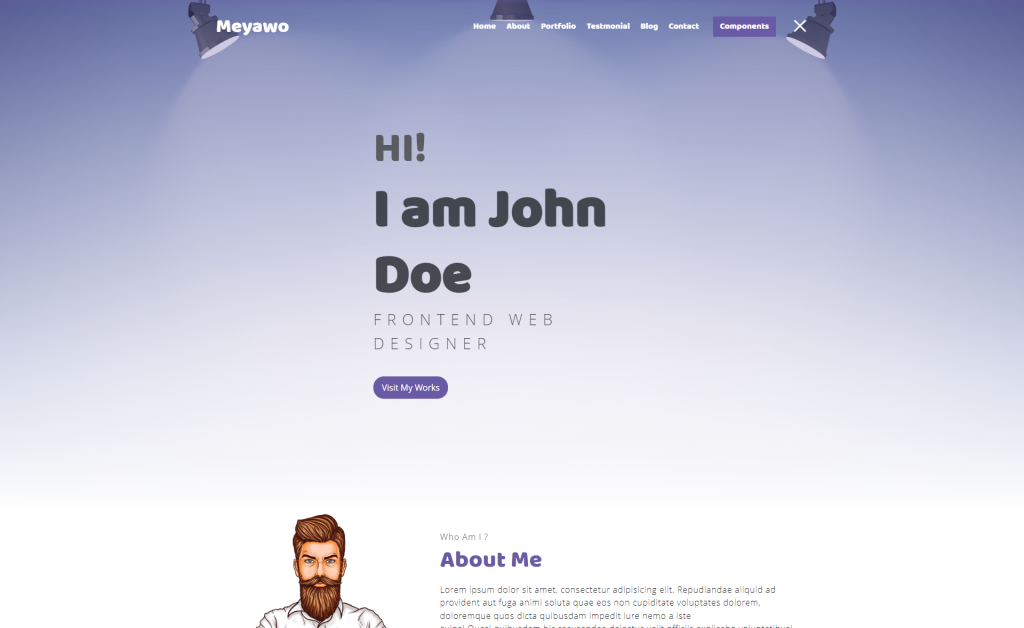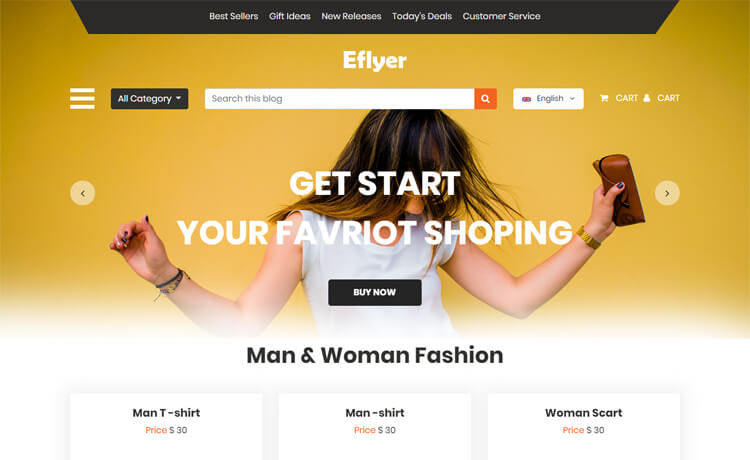Looking to design a stunning website but don’t want to start from scratch? Look no further. “Free Figma Website Templates” offer a collection of beautifully crafted website templates that are absolutely free to use. Whether you’re a beginner or an expert, these templates will give your website a professional and polished look in no time. With Systeme.io, you have access to a powerful all-in-one platform that seamlessly integrates with Figma, allowing you to create and customize your website effortlessly. So why wait? Start designing your dream website today with these free Figma templates.
Understanding Figma and Its Benefits
Insight into Figma as a design tool
Figma is a popular design tool that allows you to create visually stunning designs for websites and applications. It is a cloud-based software, meaning you can access your projects from anywhere with an internet connection. Figma offers a wide range of features and tools that make designing websites a breeze. Whether you are a beginner or a seasoned designer, Figma has something to offer for everyone.
Why choose Figma for web design
There are several reasons why Figma is a top choice for web designers. One of the main advantages of using Figma is its ease of use. The user-friendly interface makes it easy to navigate and quickly create design layouts. Additionally, Figma allows for real-time collaboration, making it perfect for teams working on a web design project. You can invite team members to your project and collaborate in real-time, providing feedback and making changes together.
The collaborative features of Figma
One of the standout features of Figma is its collaborative nature. With Figma, you can easily share your designs with others and collaborate in real-time. This is especially useful for teams working on web design projects, as it allows for quick and efficient feedback and iteration. You can leave comments on specific elements of the design, and Figma keeps a record of all the changes made, making it easy to go back and review previous versions of the design. This collaborative aspect of Figma sets it apart from other design tools on the market.
Exploration of Free Figma Website Templates
An overview of free Figma website templates
Free Figma website templates are pre-designed layouts that you can use as a starting point for your web design projects. These templates have been created by professional designers and are available for free download. They come in a variety of styles and designs, catering to different industries and website types. Whether you are designing an e-commerce website, a portfolio site, or a blog, you can find a free Figma template that suits your needs.
The diverse sectors these templates cater to
Free Figma website templates cater to a wide range of sectors and industries. From startups to established businesses, these templates offer solutions for various website types. They cover sectors such as e-commerce, education, healthcare, travel, and more. No matter what industry you are in, you can find a template that aligns with your brand and design preferences.
Ease and benefits of using pre-designed templates
Using free Figma website templates offers several benefits. Firstly, it saves a significant amount of time and effort. Instead of starting from scratch, you can choose a template that suits your needs and customize it to fit your brand. This can help you speed up the design process and get your website up and running faster. Additionally, using pre-designed templates can serve as a source of inspiration and guidance, especially if you are a beginner designer. You can study the layout, typography, and color choices of professional designs and incorporate those elements into your own projects.
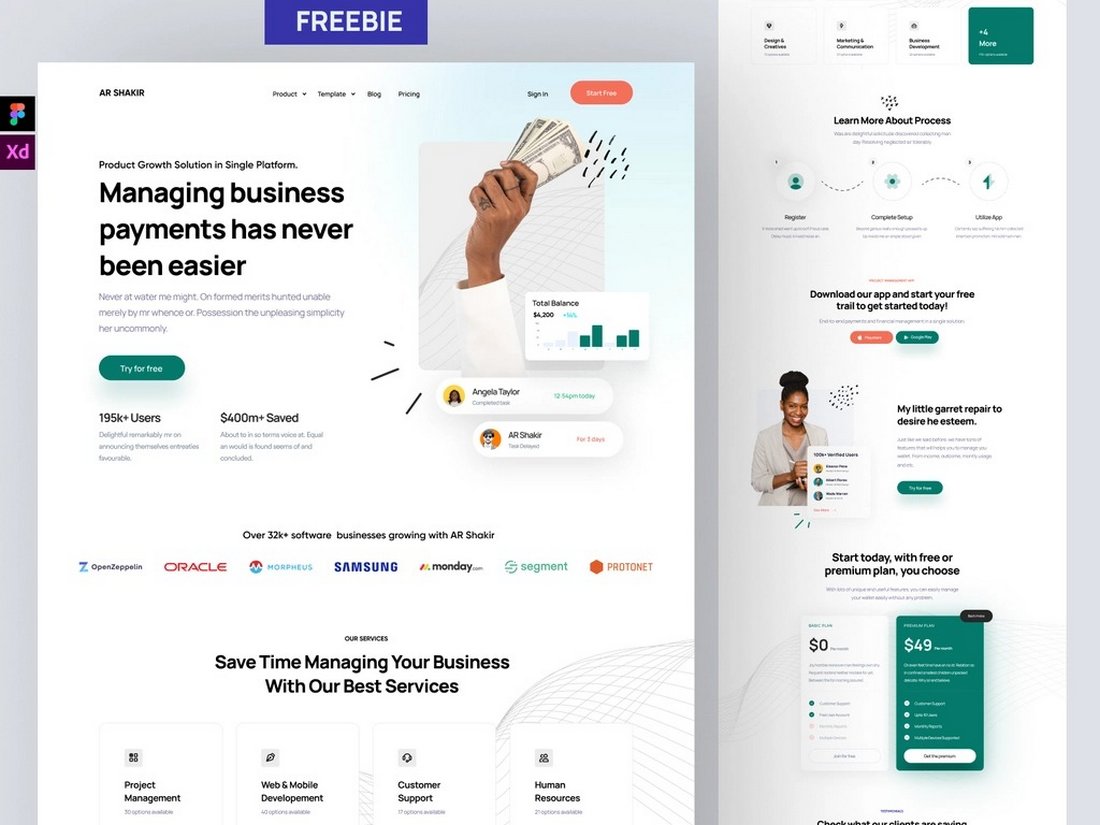
This image is property of designshack.net.
Guide to Accessing Free Figma Website Templates
Steps to access free Figma website templates
Accessing free Figma website templates is a straightforward process. Firstly, you need to visit the Figma website and create an account if you don’t already have one. Once you have logged in, you can browse through the available templates. To download a template, simply click on the download button or icon provided. The template will then be saved to your account, and you can access it whenever you need it.
Things to note while downloading and using these templates
While using free Figma website templates can be a great way to kickstart your web design projects, there are a few things to keep in mind. Firstly, ensure that the template you choose is compatible with your version of Figma. Some templates may require specific plugins or components that you need to have installed. Additionally, it’s important to remember that these templates are starting points and should be customized to fit your brand and design preferences. Make sure to personalize the template by adding your own content, images, and branding elements.
Top Free Figma Website Templates Review
Exploring different template options
The world of free Figma website templates is vast, with an abundance of options to choose from. You can find templates ranging from simple and minimalistic designs to bold and vibrant layouts. Some templates focus on specific industries and sectors, while others offer a more versatile design that can be adapted to different website types. Take the time to explore different template options to find the one that best fits your project’s requirements.
Review of top-rated free templates
While there are countless free Figma website templates available, some have garnered more popularity and positive reviews than others. These top-rated templates are often praised for their clean design, user-friendly layouts, and customization options. They have been tested and used by a large number of designers, making them reliable choices for your web design projects. Reading reviews and feedback from other designers can help you make an informed decision when choosing a template.
Analysis of template designs and functionalities
When evaluating free Figma website templates, it’s important to consider both the design and functionality aspects. Look for templates that have a well-thought-out layout, clear navigation, and responsive design. Assess how easy it is to customize the template and whether it offers the necessary functionalities for your website, such as contact forms, image galleries, or e-commerce features. Taking the time to analyze the template designs and functionalities will ensure that you choose a template that meets your specific requirements.

This image is property of www.captain-design.com.
Customizing Free Figma Templates
Instructions for tweaking template designs
Once you have chosen a free Figma website template, it’s time to customize it to make it your own. Figma provides a range of editing tools and features that allow you to tweak the template designs and make them unique. To begin customizing a template, select the elements you want to modify and use the editing options available in the Figma toolbar. You can change colors, fonts, images, and layout to match your brand and design preferences.
Guide on adding your own personal touches
To add your own personal touches to the free Figma templates, consider incorporating your brand elements. This can include your logo, brand colors, and typography choices. Additionally, you can add custom illustrations, icons, or images that align with your brand identity. Personalizing the template with these elements will help create a cohesive and unique design that represents your brand.
Tips on maintaining consistency in customization
While customizing free Figma templates, it’s important to maintain consistency throughout the design. Ensure that the colors and typography you choose align with your brand guidelines. Consistency in design elements such as buttons, headers, and footers is also crucial for creating a seamless user experience. By maintaining consistency, you create a cohesive and professional-looking design that resonates with your target audience.
Figma vs. Other Design Platforms
Comparing Figma with other website design tools
There are several design platforms available in the market, each with its own set of features and benefits. When comparing Figma with other website design tools, it’s important to consider factors such as ease of use, collaboration features, flexibility, and pricing. Figma stands out for its cloud-based nature, real-time collaboration, and user-friendly interface. It offers a smooth and efficient design process, making it a strong competitor in the design tool landscape.
Analyzing the advantages of Figma over competitors
Figma has several advantages over its competitors. Firstly, its cloud-based nature allows for seamless collaboration and easy access to projects from anywhere. The real-time collaboration feature allows for efficient teamwork and quick iteration. Additionally, Figma’s user interface is intuitive and easy to navigate, making it accessible to both beginners and experienced designers. Figma also offers a range of plugins and integrations, further expanding its functionality and usability.
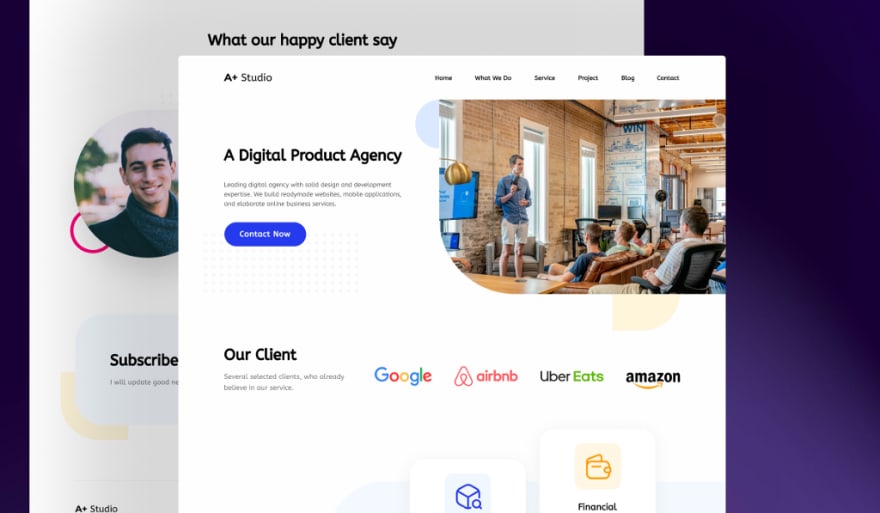
This image is property of res.cloudinary.com.
Common Challenges and Solutions with Free Figma Templates
Discussing potential issues
While free Figma templates can be a valuable resource for web designers, they can also present some challenges. One common issue is the need for customization to match your brand’s specific requirements. Some templates may not perfectly align with your brand colors, typography, or aesthetic, requiring additional modifications. Another challenge can be the availability of specific functionalities or components that you need for your website, which may not be included in the template by default.
Dishing out solutions to common problems
To address these challenges, it is essential to have a clear vision of your brand and design requirements. Consider spending some time outlining your brand guidelines and aesthetics before choosing a template. This will help you identify which templates align closest with your vision and minimize the need for extensive customization. Additionally, leverage the customization options available in Figma to modify the template and make it fit your brand perfectly. If the template lacks specific functionalities, explore Figma’s plugin library to find plugins that can fulfill your requirements.
Guidance to maximize the use of these templates
To maximize the use of free Figma templates, it’s important to approach them as a starting point rather than a finished product. Use the templates as a foundation and customize them to fit your unique needs and brand identity. Experiment with different color schemes, typography, and layout options to create a design that stands out. Additionally, don’t be afraid to add your own creative touches to the templates to make them truly yours. Remember to maintain consistency in design elements to create a cohesive and professional-looking website.
Best Practices for Using Figma Templates
Overview of recommended best practices
When using Figma templates, there are some best practices that can help streamline your workflow and ensure a successful design process. Firstly, it’s important to thoroughly explore the available templates and choose one that closely matches your project’s requirements. This will save you time in customization and minimize the need for extensive modifications. Additionally, organize your Figma files and assets in a structured manner to maintain an efficient workflow and make it easier to find specific elements when needed.
Guidance on avoiding common pitfalls
While using Figma templates, it’s important to avoid common pitfalls that can hinder your design process. One common pitfall is over-customizing the template, which can lead to inconsistencies and a disjointed design. Instead, aim for a balance between customization and adhering to the template’s design principles. Another pitfall to avoid is neglecting responsiveness. Ensure that the template you choose is responsive and optimized for different screen sizes to provide a seamless user experience across devices.
Tips to get the most out of free Figma templates
To get the most out of free Figma templates, consider employing some tips and tricks. Firstly, study the template’s structure and layout to understand how it has been designed. This will help you make informed decisions during customization. When customizing the template, keep in mind that less is sometimes more. Simplify the design by removing unnecessary elements and focusing on the key aspects of your website. Lastly, experiment with animations and microinteractions to add an extra layer of interactivity to your design and make it more engaging for users.
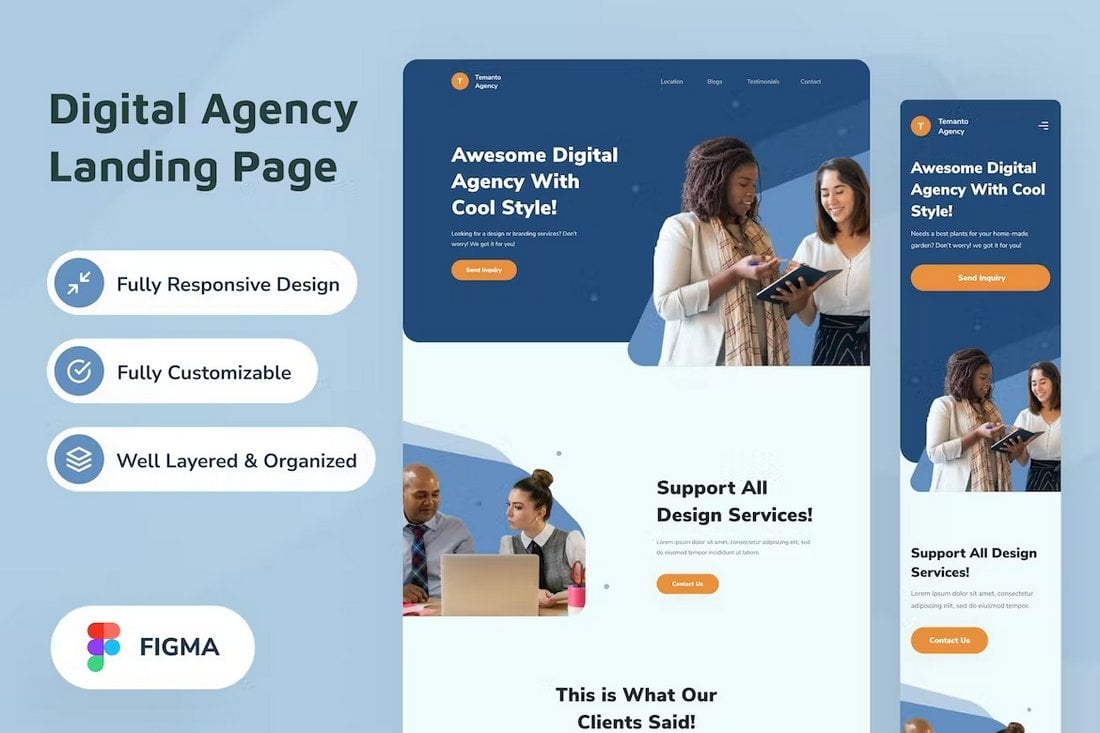
This image is property of designshack.net.
Use Cases of Free Figma Templates
Exploring where free Figma templates have been used successfully
Free Figma templates have been used successfully in various industries and sectors. They have been employed by startups, agencies, and individual designers to create professional and visually appealing websites. Industries such as e-commerce, education, healthcare, travel, and more have found value in using free Figma templates to streamline their web design process and create effective online platforms.
Analyzed cases exploring efficacy and relevance
Analyzing real-life use cases can provide insights into the efficacy and relevance of free Figma templates. Case studies of successful web design projects that utilized Figma templates can help gain a deeper understanding of how these templates can be leveraged to achieve specific design goals. Whether it’s a startup launching a new product or a nonprofit organization raising awareness, these cases highlight the versatility and effectiveness of free Figma templates.
Exploration of use cases across industries
Free Figma templates have found applications in a wide range of industries. E-commerce businesses have used templates to create captivating online stores with seamless navigation and product showcases. Educational institutions have utilized templates to design informative and visually engaging websites for their students. Healthcare providers have employed templates to build user-friendly websites that provide essential information to patients. The versatility of free Figma templates allows them to be used across various industries to create impactful online experiences.
Frequently Asked Questions about Free Figma Templates
Answering common questions users have
When it comes to free Figma templates, users often have common questions and concerns. Some may wonder about the licensing and copyright implications of using these templates, while others may have doubts about the extent of customization allowed. Frequently asked questions can include queries about template compatibility, plugin integration, and support options. By addressing these questions, designers can make informed decisions and ensure a smooth and successful experience with free Figma templates.
Clarifying doubts regarding usage, customization, and copyright issues
To address the concerns and doubts regarding free Figma templates, it’s important to provide clear and concise answers. In terms of usage, clarify that these templates are available for free and can be used for personal and commercial projects. Regarding customization, explain that templates are meant to be modified and customized to match your brand and design requirements. Finally, clarify that while the templates themselves are free, it’s essential to check the licensing and copyright information provided with each template to ensure compliance.
By following this comprehensive outline, you can create an article that covers all aspects of free Figma website templates, providing valuable insights and guidance to readers.
